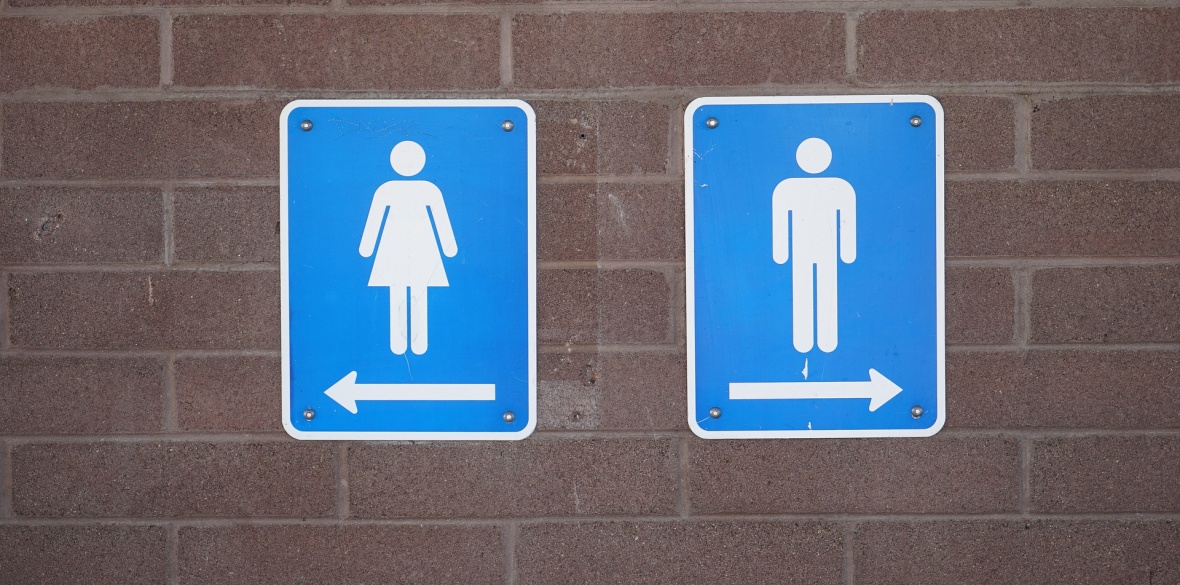This is the last article you can read this month
You can read more article this month
You can read more articles this month
Sorry your limit is up for this month
Reset on:
Please help support the Morning Star by subscribing here
WORLD Toilet Day, November 19, is an important date in the diary — it is when we highlight the millions of people who are denied access to decent toilets and sanitation.
Traditionally the focus of World Toilet Day has been in parts of the world where the lack of clean toilets and safe running water is a scandal that the world has failed to tackle and which results in untold deaths every year.
However, in recent years working with the the International Transport Workers Federation (ITF), and the World Toilet Federation, Unite has focused on how in the 21st century hundreds of thousands of workers in the UK are denied toilet dignity.
Unite recognises the global understanding that defines toilet dignity as the right at work to safely use a clean toilet with hot and cold running water when the need arises without having to ask permission to do so.
One of the groups of workers where toilet dignity is at its lowest is among professional drivers.
Unite recently conducted a survey of over 6,000 members who drive for a living, predominantly driving buses or lorries.
The findings of that survey highlight the indignities and consequent health issues many of our members face.
The survey found that 70 per cent of members who are drivers do not have access to a toilet or washing facilities on a standard working day.
Even more shocking was that during the first lockdown earlier this year, access to toilets plummeted, with only one in five drivers (20 per cent), reporting they had access to a toilet when they needed it.
Of those reporting that they were denied toilet dignity 6 per cent said this occurred all the time, while just under four in 10 (39 per cent) reported that it was a frequent occurrence.
It is likely that members are suffering similar deprivations during the present lockdowns throughout the country.
This is especially disturbing when you consider that we are in the midst of a pandemic where the key advice given to us by the government is to wash your hands.
An inability to do so not only puts at risk the health of drivers but also, when deliveries are being made, the health of customers
The lack of toilet facilities certainly had a major effect on the health of members during the spring and early summer lockdown.
Several members report that they developed Covid-type symptoms as a direct result of being prevented from washing their hands while driving at work.
Concerns about having access to toilets when you need to use them is not just about preventing the spread of Covid-19, it has massive long-term health consequences.
Constantly “holding on” causes damage to the bladder, leads to infections and results in other serious health complications.
Members report a lack of toilet access affecting and worsening long-standing health conditions such as diabetes and irritable bowel syndrome.
This clearly raises the potential of disability discrimination which must be stopped.
In extreme cases, a lack of access to toilets has forced workers to leave the sector.
The lack of toilet facilities is especially challenging for women drivers, who report being denied access to toilets during their periods which is both humiliating and damaging to their health.
During pregnancy, as well as the menopause, lack of access to decent facilities is also a major problem for women drivers.
A lack of access to toilets is potentially a major disincentive for women to join these sectors.
Worryingly, members often report that they deliberately lower their fluid intake as they know that they won’t have access to toilets.
This is dangerous as workers risk dehydration which in turn affects concentration, and for professional drivers this is clearly a major concern which must be addressed.
Three years ago Unite won a major victory in the battle for toilet dignity, and drivers making deliveries or collections form commercial premises now have the right to use a toilet.
The challenge is that many employers are not abiding by the law and this was especially the case during the lockdown, when companies cited risible public-health reasons for refusing drivers access to toilets.
Such refusals were particularly problematic given the lack of alternative options.
Some companies still refused to provide access even when presented with a joint letter from the Health and Safety Executive (HSE) and the government, spelling out their legal responsibilities.
We have reported many of these to the HSE and we are also fully prepared to name and shame repeat offenders.
Ensuring that commercial premises receiving deliveries allow drivers to use their toilets is one way that Unite is helping to promote toilet dignity.
For bus drivers the onus on providing facilities must be placed on bus operators.
With bus drivers legally allowed to drive for five-and-a-half hours without a break, toilets must be installed not just in depots but en route (a portaloo is not a suitable solution).
In the meantime while decent facilities are built the operator has to make clear arrangements for drivers to access toilets, without being forced to beg.
A lack of toilet dignity is an affront in the 21st century, and it is simply intolerable that this problem remains so commonplace.
On World Toilet Day, we identify and highlight the indignities and health challenges our members experience and then for the rest of the year we concentrate on eradicating this unhealthy practice.
Diana Holland is assistant general secretary of Unite.











